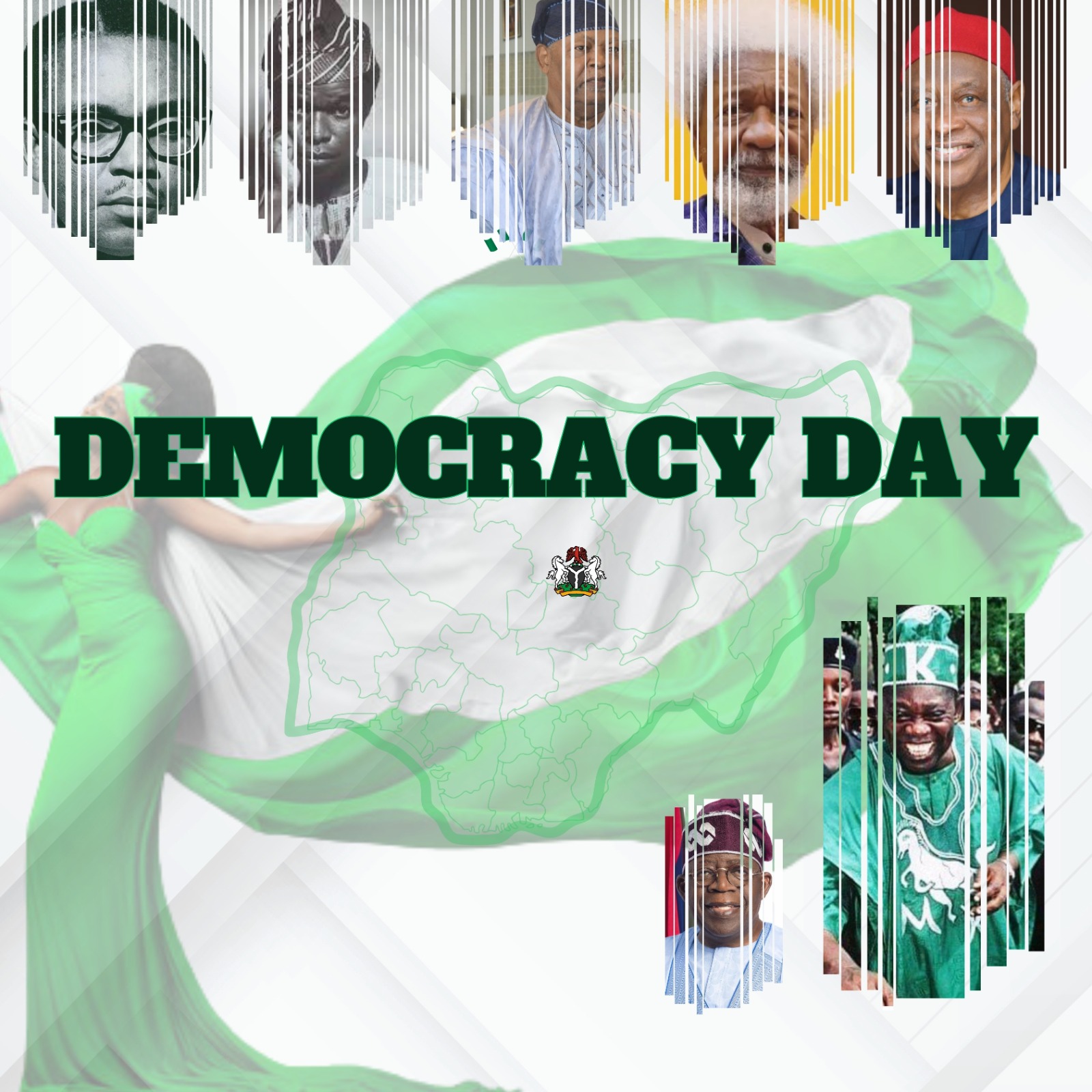Today, Nigeria marks a significant milestone in its democratic journey, commemorating 25 years of democracy. As the country reflects on its progress, it is essential to acknowledge both the achievements and the ongoing challenges that hinder its development. Despite the strides made, Nigeria still grapples with extreme poverty, bad leadership, terrorist attacks, kidnapping, and other security concerns, which underscore the need for improved governance and leadership.
The Significance of June 12
Nigeria's democratic journey began on June 12, 1993, when the country held its freest and fairest democratic elections, which were later annulled by the military regime. This event is widely regarded as a significant moment in Nigeria's quest for democracy. The election was won by MKO Abiola, a businessman and philanthropist who remains a symbol of democracy and resistance in Nigeria. In 2019, June 12 was officially declared Democracy Day in Nigeria, replacing May 29, which had been observed since 1999. This change aimed to honor the significance of the June 12 election in the country's democratic journey.
Nigeria's Strengths and Opportunities
Nigeria is a multi-ethnic nation with over 250 ethnic groups, each with its own language and cultural practices. This diversity enriches the country's cultural tapestry and adds to its vibrancy. The country is also home to a thriving film industry, often referred to as Nollywood, which is the second-largest in the world by volume, surpassing Hollywood and second only to India's Bollywood. Nigeria's economy is the largest in Africa, with a diverse range of industries contributing to its GDP. The country is known for its entrepreneurial spirit, with many successful entrepreneurs making significant contributions both domestically and internationally.
Nigeria also boasts a rich cultural heritage, with traditional art, music, dance, and literature deeply rooted in its diverse ethnic groups. Nigerian literature has gained global recognition through writers such as Chinua Achebe, Wole Soyinka, and Chimamanda Ngozi Adichie. The country has a youthful population, with a significant proportion under the age of 30, which presents both opportunities and challenges for its development. Nigerian cuisine is also flavorful and varied, reflecting the country's diverse cultural influences.
READ ALSO
Nigeria to Celebrate Democracy Day with Military Parade at Eagle Square
Military Vows Unwavering Support for Democracy Amidst Calls for Intervention
Challenges and Call to Action
Despite these strengths, Nigeria still faces numerous challenges that hinder its progress. The country is struggling with extreme poverty, bad leadership, terrorist attacks, kidnapping, and other security concerns. The recent strike action by the Nigerian Labour Congress over the minimum wage is a testament to the ongoing struggle for better working conditions and economic stability. The current inflation rate and the ongoing negotiations between the congress and the federal government to increase the minimum wage from 30,000 Naira are pressing issues that require immediate attention.Furthermore, Nigeria encounters several primary obstacles in pursuing sustainable development, including:
- Poor Funding: Nigeria faces significant challenges in securing adequate funding for its development initiatives, particularly in the education sector.
- Insecurity and Conflict: Insecurity and conflict, particularly in the southeastern regions, have hindered economic development and created an environment that is not conducive to sustainable growth.
- Poverty and Inequality: Nigeria struggles with high levels of poverty and inequality, which are major obstacles to sustainable development.
- Environmental Degradation: Nigeria faces significant environmental challenges, including deforestation, pollution, and climate change.
- Corruption and Mismanagement: Corruption and mismanagement of resources are significant obstacles to sustainable development in Nigeria.
- Infrastructure Deficiencies: Nigeria's infrastructure, particularly in the areas of transportation, energy, and water supply, is inadequate and inefficient.
- Human Capital Development: Nigeria faces significant challenges in developing its human capital, including low levels of education and skills.
- Climate Change: Nigeria is vulnerable to the impacts of climate change, including rising temperatures, sea-level rise, and increased frequency of extreme weather events.
As Nigeria celebrates 25 years of democracy, it is essential that its leaders take a closer look at the country's challenges and work towards addressing them. The country is blessed with significant mineral resources, including oil, and should not be struggling as a third-world country. It is time for Nigeria to move forward and become a progressive and developing nation, rather than wallowing in poverty.
As we celebrate Democracy Day, we must acknowledge the progress made and the challenges that still lie ahead. It is crucial that Nigeria's leaders work towards addressing these challenges and ensuring that the country's citizens enjoy the full benefits of democracy. The country's diverse strengths, including its entrepreneurial spirit, cultural heritage, and youthful population, present opportunities for growth and development. It is time for Nigeria to rise above its current struggles and become the progressive and developing nation it was meant to be.
Happy Democracy Day, Nigeria.





One thought on “Celebrating 25 Years of Democracy in Nigeria: A Call to Action for Better Leadership”